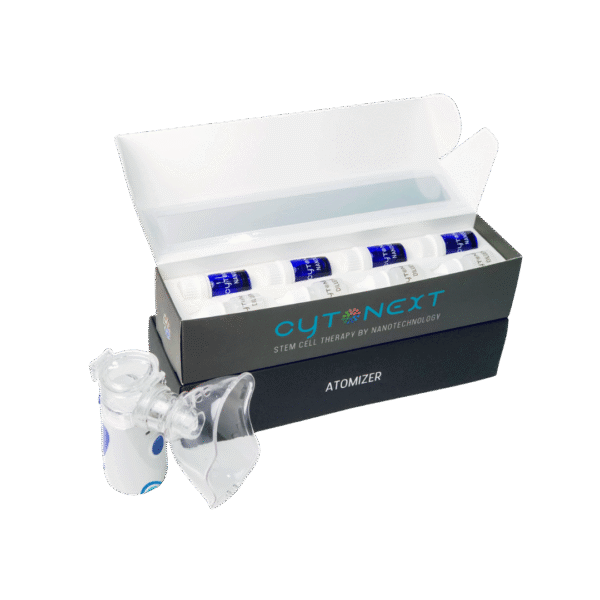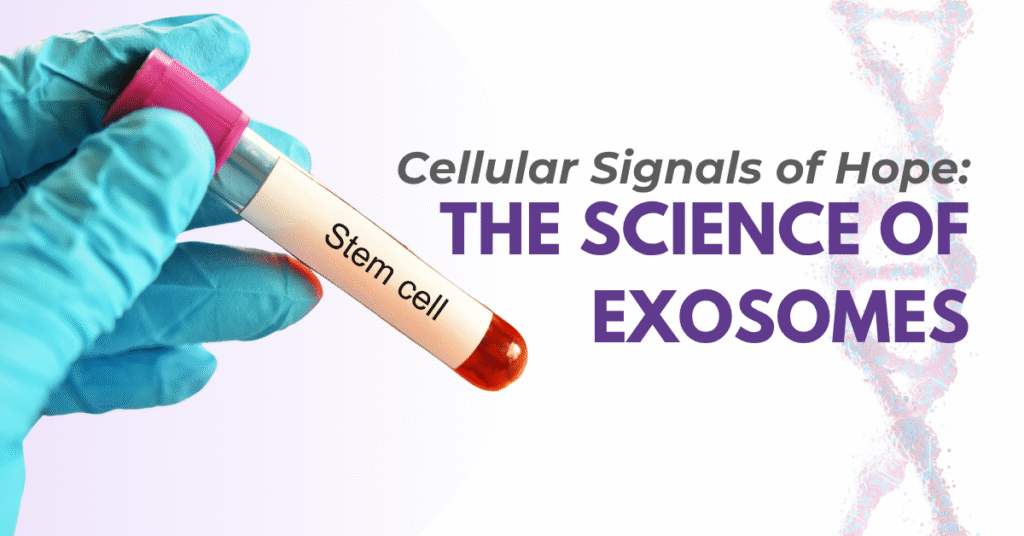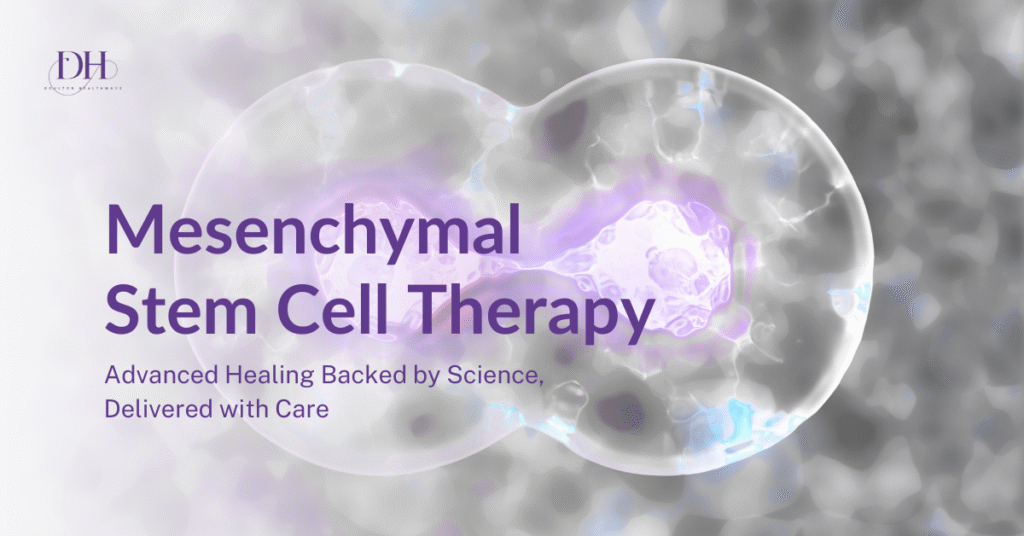
Exosome Inhaler: Powerful Support for Mind & Lung Healing
Exosomes are tiny nanovesicles, naturally released by stem cells, carrying proteins, miRNAs, and growth factors. They act as cellular messengers, signaling repair in tissues injured by stress, depression, insomnia, or lung damage.
Why this matters for mental health
Exosomes—tiny extracellular vesicles released by stem cells—carry bioactive molecules like proteins, lipids, and microRNAs. These messengers are now shown to cross the blood–brain barrier, making them uniquely capable of delivering healing signals directly to the central nervous system.
📌 What does this mean for mental health?
Studies indicate that exosomes reduce neuroinflammation, support neuronal survival, and even help reverse damage associated with depression, anxiety, chronic stress, and neurodegeneration.
- Clinical trials registered on ClinicalTrials.gov highlight their use in brain-related disorders like Alzheimer’s, Parkinson’s, and post-COVID neuroinflammation.
- Publications from PMC (PubMed Central) provide evidence of exosomes reducing anxiety symptoms and promoting brain repair through anti-inflammatory and anti-apoptotic pathways.
More importantly, exosomes modulate key brain cells—such as microglia (the immune cells of the brain) and astrocytes (which regulate neurotransmitters and repair damaged tissue).
Why This Matters for Lungs & Post‑COVID Recovery
The lungs don’t just breathe—they carry the burden of illness long after symptoms fade. For millions still recovering from COVID-19, or battling silent lung inflammation and chronic respiratory distress, healing remains incomplete.
This is where Exosome Inhalers offer new, science-backed hope.
In early-stage human trials, inhaled exosomes derived from mesenchymal stem cells (haMSC‑Exos) were safely delivered to patients with COVID-19-related pneumonia. Over just five consecutive days of inhalation, researchers observed:
- A reduction in lung lesions (visible in scans)
- Improved blood oxygen saturation
- No serious side effects
For Long COVID sufferers, this may explain why symptoms like shortness of breath, fatigue, chest tightness, and lingering cough improve with exosome therapy.
And for those with asthma, COPD, or pollution-related lung inflammation, this form of cellular support could reduce flare-ups and promote steadier, calmer breathing—day by day.
This isn’t about a cure. It’s about giving the lungs a chance to repair at the cellular level, gently and gradually—with every breath.
What Makes Exosomes Gentle Yet Powerful
Exosomes are not cells—but they carry the healing signals of cells. Think of them as tiny messengers sent out by stem cells to repair damage, reduce inflammation, and reprogram healing—without overwhelming the body.
Their unique properties make them an ideal option for people who may not tolerate more invasive or systemic therapies:

Gentle, Needle-Free Delivery
Inhaled exosomes are non-invasive. Gentle enough to use at home. Powerful enough to reach where traditional therapies cannot.

Low Risk, High Tolerance
Because exosomes are cell-free and naturally occurring in the human body, they carry a very low risk of triggering immune rejection or inflammation.
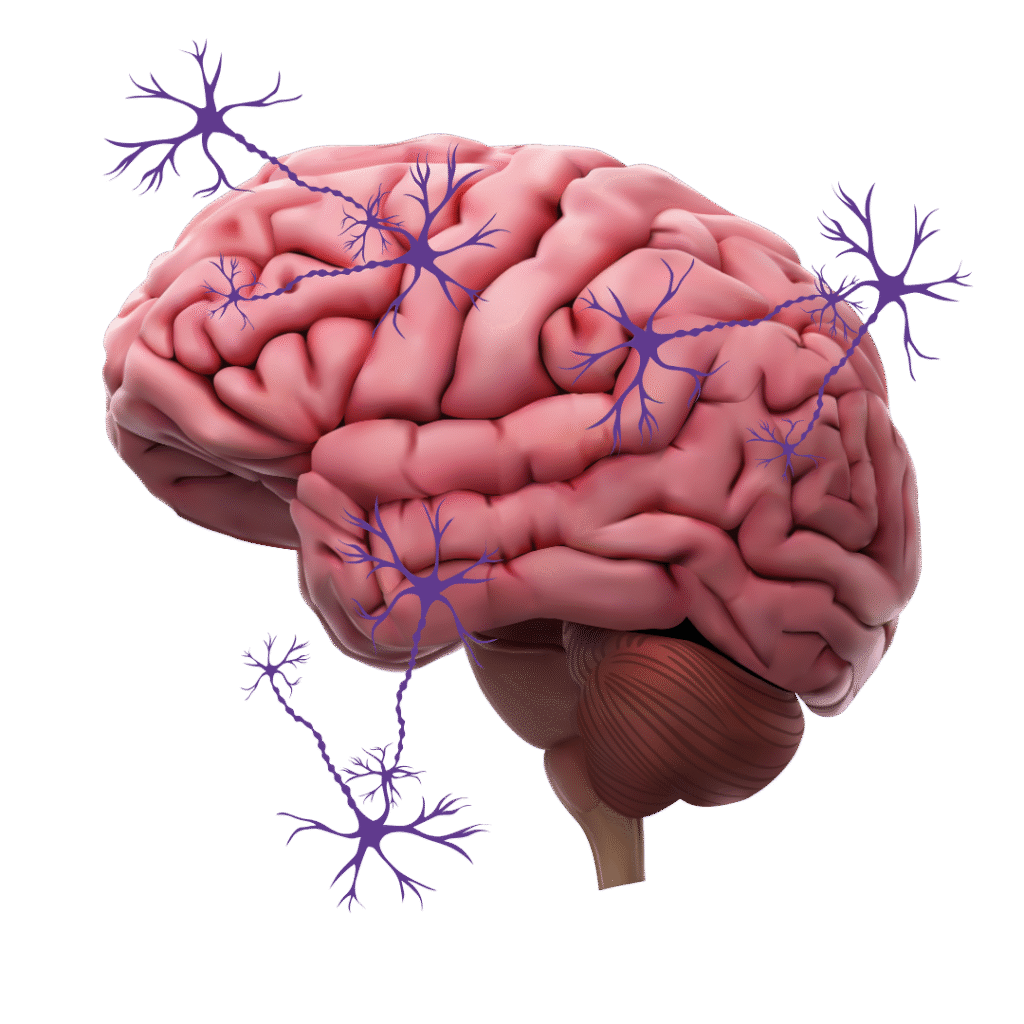
Crosses Brain & Lung Barriers
Because exosomes are cell-free and naturally occurring in the human body, they carry a very low risk of triggering immune rejection or inflammation.

Restores Cells
Because exosomes are cell-free and naturally occurring in the human body, they carry a very low risk of triggering immune rejection or inflammation.

What’s Inside an Exosome?
Each exosome is like a tiny biological USB drive, carrying:
- MicroRNAs (miRNAs) that regulate gene expression
- Messenger RNAs (mRNAs) that instruct cells to regenerate
- Proteins & lipids that reduce inflammation and support repair
- Antioxidants and anti-apoptotic molecules that prevent cell death
- Immunomodulatory agents that help balance the immune system
These contents aren’t random—they’re purposefully secreted by youthful MSCs, especially in Passage 2, to signal healing across the body.
How Exosome Therapy Helps Mental Health and Sleep

Depression & Anxiety
Exosomes help calm neuroinflammation, rebalance neurotransmitter signaling, and support neural resilience by delivering regulatory miRNAs and proteins — helping reduce anxiety and lift mood.

Sleep Disorders & Insomnia
By cushioning the brain against inflammatory stress and gently reminding neural circuits to reset, exosome signals may help shift the body from wake → rest more naturally.
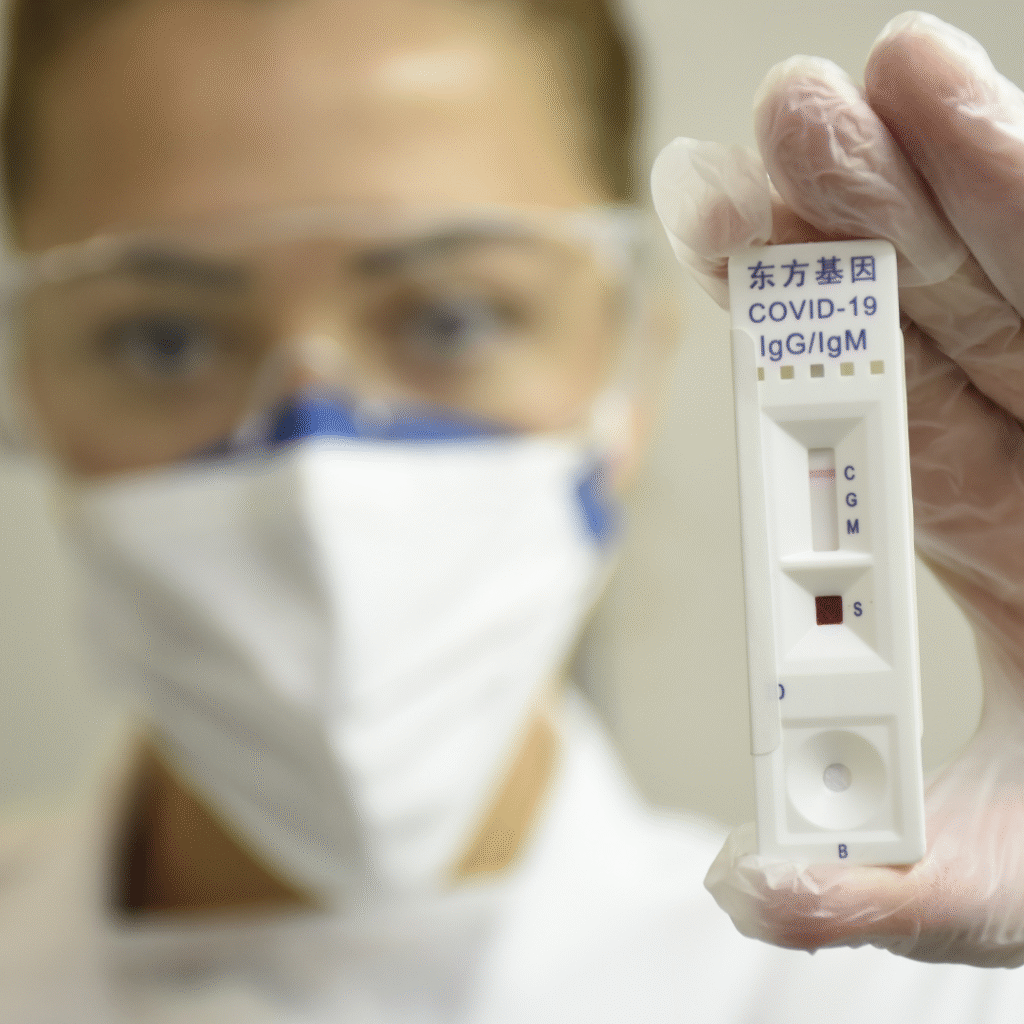
For Post‑COVID & Lung Challenges
Inhaled exosomes may ease residual inflammation, improve oxygenation, reduce fibrosis, and support lung tissue recovery even months after infection. Early trials show improved CT scans and oxygen-support status.
How Exosomes Compare to Traditional Therapies
Exosome inhalation represents a new frontier in regenerative medicine—without the complexity or downtime of traditional stem cell treatments. Unlike IV stem cells, which require clinical handling, exosomes are acellular, meaning they’re easier to deliver, more stable, and more targeted. Their nano-size allows them to cross cellular and neural barriers, reaching areas IVs may miss—especially in the lungs and brain.
Think of them as precision messengers—whispering repair instructions at the cellular level.
Who Might Benefit the Most?
While safe for many, certain groups may experience heightened benefit:
- Long COVID survivors struggling with lung scarring or fatigue
- Individuals with chronic burnout, sleep dysregulation, or brain fog
- Adults with early-stage neurodegeneration (e.g., mild cognitive impairment)
- High-stress professionals experiencing anxiety or executive dysfunction
- Autoimmune-sensitive individuals seeking non-triggering solutions
- Older adults who cannot tolerate systemic stem cell therapy
- Urban dwellers exposed to pollution, smoke, or environmental stressors
Scientific & Clinical Evidence Snapshot
- Safety and Efficacy of Umbilical Cord Mesenchymal Stem Cell Exosomes in Treating Chronic Cough After COVID-19
- New inhalation therapy could relieve lung fibrosis in mice and rats
- Exosomes: potential targets for the diagnosis and treatment of neuropsychiatric disorders
Cytonext Stem Cell Inhaler Kit – Non‑Invasive Regenerative Relief
Experience non-invasive regenerative relief with the Cytonext Stem Cell Inhaler Kit. Powered by nano-sized stem cell extracts, it supports cellular renewal, immune balance, and respiratory wellness—delivered gently through each inhaled breath.
Future of Exosome Inhalation: What’s Next?

Neurological Healing Breakthroughs
Clinical studies are underway to investigate how exosomes can further support treatment for neurodegenerative diseases like Parkinson’s, Alzheimer’s, and Multiple Sclerosis.
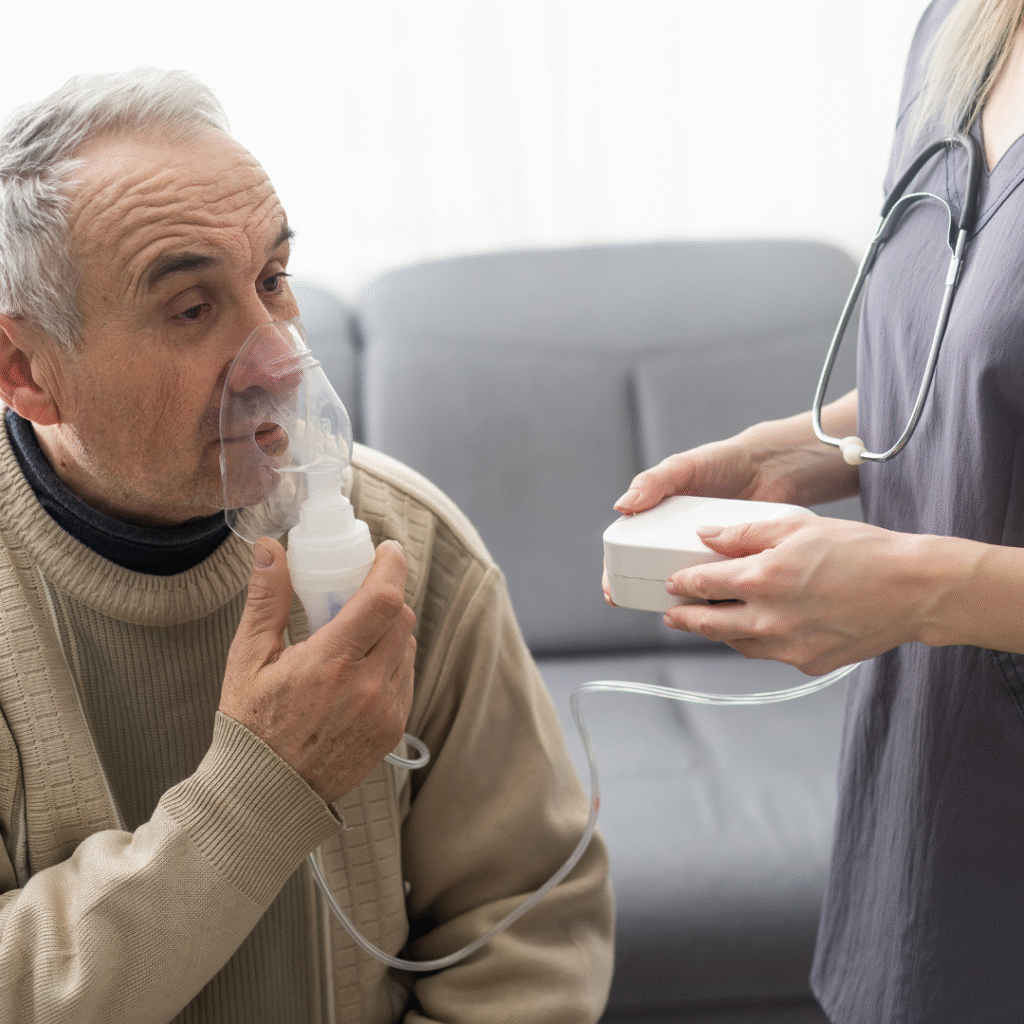
Advanced Respiratory Repair
Ongoing trials show promise for exosome inhalation in COPD, fibrosis, asthma, and long COVID—helping reduce scarring, boost oxygen, and ease immune overactivity.

Personalized Regenerative Therapy
Future innovations may use personalized exosomes from your own stem cells—minimizing rejection and expanding use for autoimmune conditions.

Global Accessibility and Standardization
As interest grows, global groups are building ethical, standardized protocols to make exosome inhalation safer, clearer, and more accessible—especially where lung and brain illness rates are rising.
All Rights Reserved 2025

